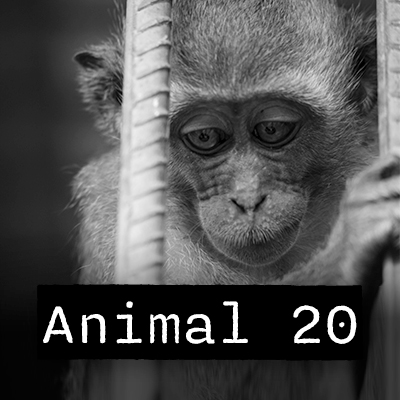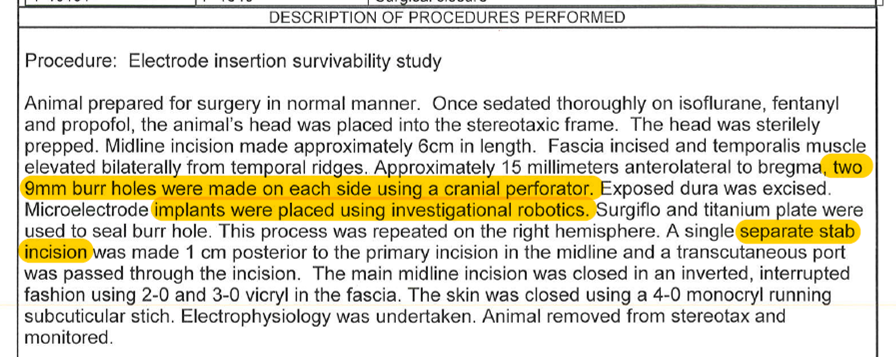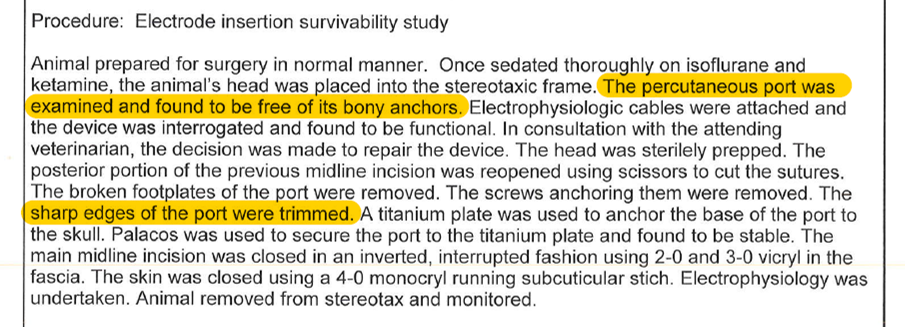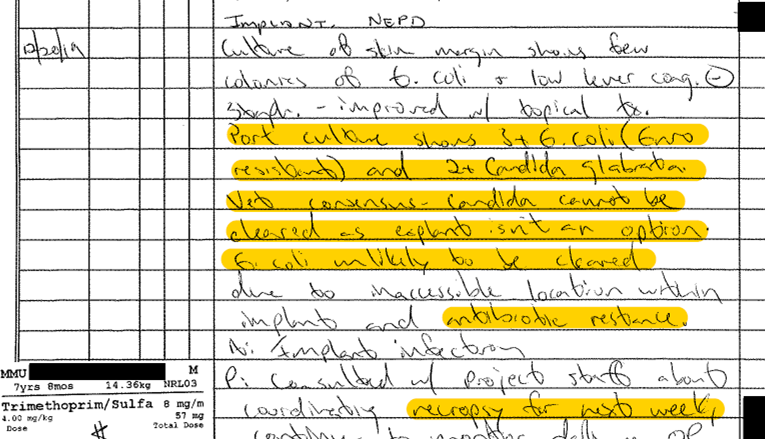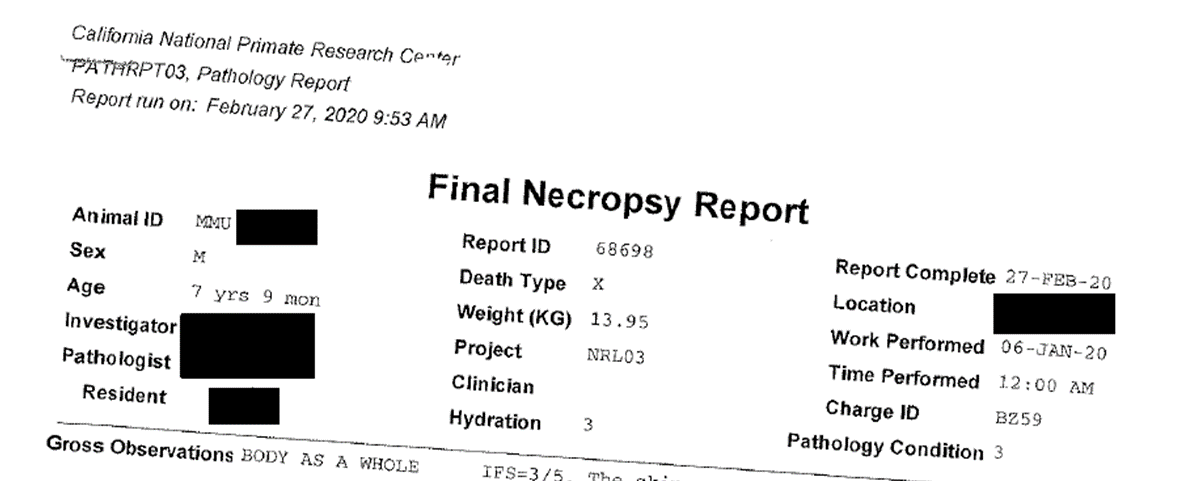Animal 20
Through 2020, Elon Musk’s company Neuralink paid $1.4 million to the University of California, Davis, to use its facilities, where experimenters removed portions of monkeys’ skulls to implant electrodes in the animals’ brains related to the development of a “brain-machine interface.” Only in 2022, following a public records lawsuit by the Physicians Committee for Responsible Medicine, did the troubling details of these experiments begin to come to light. The company is still conducting experiments on animals at its facilities in California and Texas.
This is the story of one monkey, “Animal 20.” He was a macaque who was 7 years old when Neuralink staff put him under the knife for the first time on Dec. 2, 2019 during an “Experimental” surgery that lasted 9 hours. During the surgery, Neuralink employees made an incision along the side of Animal 20’s head and then cut and “elevated” the underlying muscle. They then drilled two burr holes into his skull, inserted electrodes attached to implants, and placed titanium plates over the holes.
The exposed portions of the implants were referred to as “pill boxes” and were “secured in place with up to 20 blunt-tipped screws.” Those pill boxes were connected to a cable and port under his skin that were secured with more “bone screws.”
Immediately, it was clear that something had gone wrong during the surgery. A handwritten note stated that both front (rostral) and back (caudal) feet of the implant “broke off of xternal connector base.”
Animal 20 was seen “pulling on port connector which is now dislodged (no longer secured).”
On Dec. 3, Neuralink subjected Animal 20 to another surgery to fix their mistake. They found that a device they had implanted was “free of its bony anchors” and had “sharp edges.”
The next day, Animal 20 was “picking at incision and occasionally pulling on implant.” To address this, UC Davis staff requested “additional enrichment devices.”
Soon, infections developed. On Dec. 20, UC Davis staff found antibiotic resistant E. coli and Candida glabrata, a fungal infection, at the surgical site. They discussed a “necropsy next week,” meaning they planned to euthanize Animal 20.
On Jan. 6, 2020, UC Davis staff euthanized Animal 20 and performed a necropsy that night.

